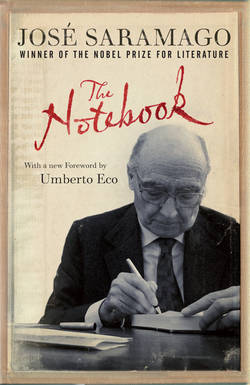Читать книгу The Notebook - José Saramago - Страница 25
На сайте Литреса книга снята с продажи.
October 6: On Fernando Pessoa
ОглавлениеHe was a man who knew languages and wrote poetry. He earned his bread and wine replacing words with words. He wrote poetry as one must write poetry, as if for the first time. To begin with he called himself Fernando, a person like anyone else. One day he remembered to announce the imminent appearance of a super-Camões, a Camões much greater than the old one, but since he was a man who was known to be discreet, who used to walk through Douradores in a light-colored gabardine, a bow tie, and featherless hat, he did not say that the super-Camões was in fact himself. After all, this super-Camões could not become a still greater Camões; he was merely waiting to become Fernando Pessoa, a phenomenon the like of which Portugal had never known. Naturally, his life was made up of days, and we know that days may be alike but each never happens more than once, which is why it is not surprising that on one of those days when Fernando passed in front of a mirror he spied in it, at a glance, another person.1 He thought this was just another optical illusion, those ones that happen when you’re not paying attention, or that the last glass of eau de vie had not agreed with his liver and his head, but he cautiously took a step back just to make sure that—as is usually assumed—when mirrors show something they do not make mistakes. This one, however, had indeed made a mistake: there was a man looking out at him from inside the mirror, and that man was not Fernando Pessoa.
He was a little shorter, and his face was somewhat dark-skinned and completely clean-shaven. Unconsciously Fernando brought his hand to his upper lip, then breathed deeply in childlike relief: his moustache was still there. One can expect many things from an image that appears in a mirror, but not that it will speak. And because these two, Fernando and the image that wasn’t an image of him, were not going to stay watching one another forever, Fernando Pessoa said, “My name is Ricardo Reis.” The other man smiled, nodded, and disappeared. For a moment the mirror was empty, bare, then right away another image appeared, of a thin, pale man who looked as if he were not long for this world. It seemed to Fernando that this must have been the first one; however, he made no comment, merely saying, “My name is Alberto Caeiro.” The other did not smile; he merely nodded slightly, agreeing, and left. Fernando Pessoa waited, having always been told that whenever there are two a third will always follow. The third figure took a few seconds to arrive, and he was one of those men who look as if they have more health than they know what to do with, and he had the unmistakable air of an engineer trained in England. Fernando said, “My name is Álvaro de Campos,” but this time he did not wait for the image to disappear from the mirror, but moved away from it himself, probably tired from having been so many people in such a short space of time. That night, in the small hours of the morning, Fernando Pessoa awoke wondering whether Álvaro de Campos had stayed in the mirror. He got up, and what he found there was his own face. So he said, “My name is Bernardo Soares,” and went back to bed. It was after assuming these names and a few others that Fernando thought it was time for him, too, to be ridiculous, and he wrote the most ridiculous love letters in the world. He made great progress in his work of translation and poetry, and then he died. His friends had told him he had a great future ahead of him, but he can’t have believed them—believed them so little, in fact, that he unfairly decided to die in the prime of life, aged forty-seven, if you can believe such a thing. A moment before the end he asked to be handed his glasses: “Give me my glasses,” were his last, formal words. To this day nobody has sought to learn what he wanted them for, such is the way the final wishes of the dying are ignored or despised, but it seems quite likely that what he wanted was to look in a mirror to see who was there in the end. But he was not allowed enough time. Actually, there wasn’t even a mirror in the room. Fernando Pessoa never did find out for sure who he was, but thanks to his doubts we can manage to learn a little more about who it is we are.
